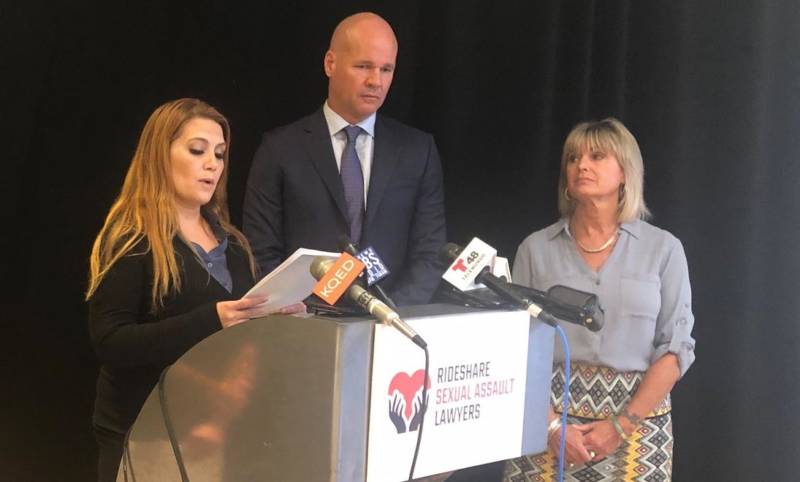The lawsuit claims that Lyft allows people who have convictions or pending complaints of sexual assault to continue driving for the platform, does not performs adequate background checks on its drivers, and does not have an appropriate or transparent internal reporting process.
"This lawsuit is a little bit different than the others that have been filed against Lyft," Estey said, "because not only does it allege that Lyft failed to take precautions to protect its passengers, it also alleges that the app that the people use is defective. And that the app actually enables these drivers to rape and sexual assault."
Lyft, however, says safety is fundamental to the company.
“What the victims describe is terrifying and has no place in the Lyft community. One in six women will face some form of sexual violence in their lives — behavior that’s unacceptable for our society and on our platform," said Mary Winfield, Lyft's head of Trust and Safety, in a statement. "As a platform committed to providing safe transportation, we hold ourselves to a higher standard by designing products and policies to keep out bad actors, make riders and drivers feel safe, and react quickly if and when an incident does occur."
Safety Measures in the App
The lawsuit argues that Lyft should have made changes to the app to prevent assaults, like requiring the camera to remain on during the whole drive and implementing an alert system if the driver goes off course, or a panic button the rider could hit to alert the company of any misconduct.
In May, Lyft announced new initiatives that focus on increasing riders' safety, which include an in-app panic button that calls 911 directly. The company also enlarged drivers' license plate numbers in the app to prevent passengers from entering the wrong vehicle.
Lyft now requires passengers to leave feedback whenever they give a driver a rating below four stars, and anonymously relays this information to the driver. Drivers and riders will also have the option to partake in sexual harassment prevention training.
"Our commitment is stronger than ever, as we dedicate more resources in our continued effort to ensure our riders and drivers have the safest possible experience," Winfield stated.
But Estey argues there are more safety precautions Lyft should be taking.

